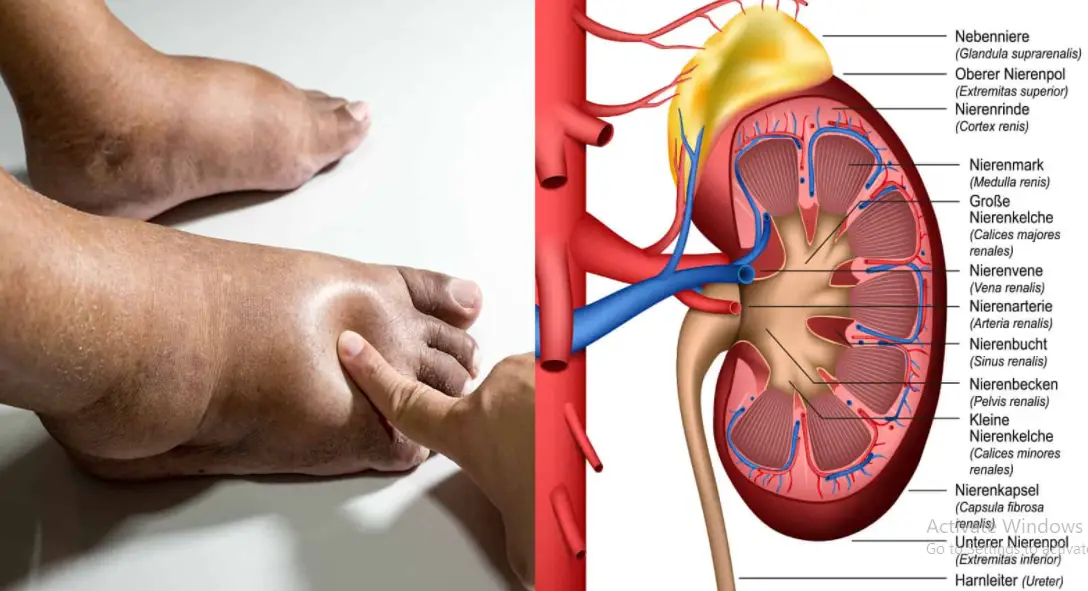In today’s society, cancer is thought of as the most dangerous disease. Rightfully so – it kills millions of people every year. However, there’s another health problem that kills more people than prostate and breast cancer combined. Surprisingly, it’s kidney diseases.
Data from the National Institute of Health has shown that more than 660,000 suffer from kidney failure. A condition linked to diabetes and high blood pressure, kidney failure is a very serious health problem. Non-functioning kidneys means that toxins end up accumulating in your tissues, and this always leads to bigger problems.
The kidneys are one of the most important organs in the human body. They detox our blood and play a role in many important processes. We rarely pay attention to them, but keeping your kidneys health is of vital importance according to many doctors. If you don’t pay attention to the health of your kidneys, you could developer kidney problems and worse.
Below you can see a list of the most telling signs of kidney problems you should be aware of.
How Important Are the Kidneys?
With one word – very. The kidneys play a major or minor role in numerous processes in the body. For example, they assist in the production of red blood cells and maintain our bone strength. The kidneys maintain the electrolyte balance in the body, prevent accumulation of toxins, and produce important blood-regulating hormones.
It’s an incredibly efficient and versatile organ that we can’t live without. The kidneys are a part of the body’s urinary tract system along with the urethra, bladder, and ureters. This system eliminates blood waste products, regulates our blood’s pH levels, and keeps the balance between electrolytes and metabolites steady. To put it simply, it’s a vital cog in the ‘machine’.
Common Kidney Problems and Risk Factors
Our kidneys are subject to a variety of problems just like any organ in the human body. The most commonly experienced kidney problems are:
- Kidney stones: stones occur when our urine has a high concentration of crystals that can’t be filtered. Calcium oxalate buildup is the most common ‘culprit’.
- Kidney infections: infections in the kidneys can occur when bacteria build up in the urethra and bladder and later spread to the kidneys. If untreated, infections can do a lot of damage.
- Injuries: kidney injuries can cause serious kidney damage or even sudden failure.
- Cysts: kidney cysts are sacs of fluid that grow on the surface or within the kidneys. The most common cysts are non-cancerous.
In terms of risk factors, some demographics are more at risk of kidney troubles than others. These include people with serious medical conditions as well as smokers and heavy drinkers. Age, ethnicity, family history of kidney problems, and gender all play a role as risk factors for kidney troubles.
Most Common Symptoms of Kidney Problems
Fatigue
Surprisingly, fatigue is high up the list of common symptoms of kidney problems. It is caused by low red blood cell levels which exhausts our muscles and leads to fatigue.
Brain Fog
Another unusual symptom of kidney problems, brain fog occurs due to toxic buildup caused by kidney failure. It is an umbrella term that describes problems with alertness, focus, and learning.
Shortness of Breath
Anemia can leave our bodies with inappropriate levels of oxygen that can lead to shortness of breath. This is a very common, yet unusual symptom of kidney problems.
Itchiness
If your body itches, it may be because of failing kidneys. The organ plays a major role in the removal of waste and toxins in the body. When its function deteriorates, toxins will start building up in your body, leading to itchy skin.
Upset Stomach and Vomiting
Many kidney issues such as infections can cause an upset stomach and make you vomit. Upset stomach is often a co-symptom of nausea reported by kidney diseases patients.
Metallic Taste in the Mouth
Feeling a strange metallic taste in the mouth? It may occur due to toxic buildup in your blood which is usually caused by failing kidneys.
Changes in Urine
Any change in the texture, color, or smell in the urine may indicate kidney problems. If it goes on for a long time, it’s time to visit the doctor.
Insomnia
According to many studies, insomnia (or trouble sleeping) is a common symptom of kidney disease.
Muscle Cramps and Twitching
An imbalance of electrolytes and fluids can lead to muscle cramps and itching. The most common culprit for it are kidney problems.
Poor Appetite
If accompanied by a metallic taste in the mouth, poor appetite is almost certainly a sign of kidney problems.
How to Keep the Kidneys Healthy
Due to their important role in our health, keeping the kidneys healthy and properly functioning is a no-brainer. To keep their health in check, make sure to eat a healthy and balanced diet, quit smoking and drinking, and get regular exercise. All of this will regulate the function of your kidneys and keep their health in check.


